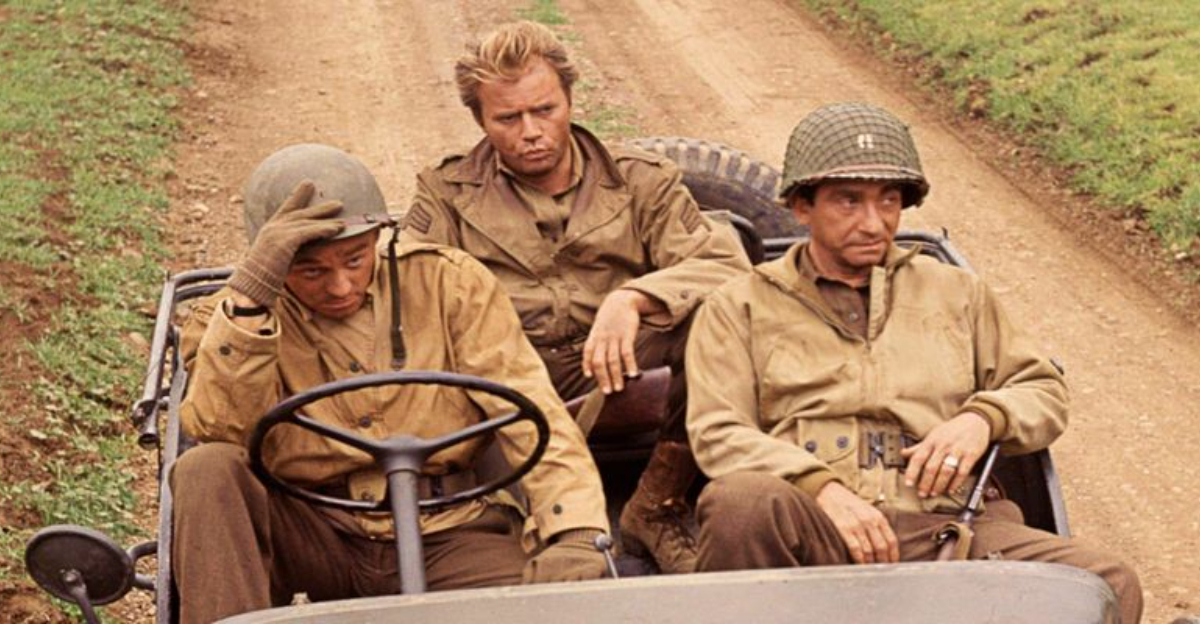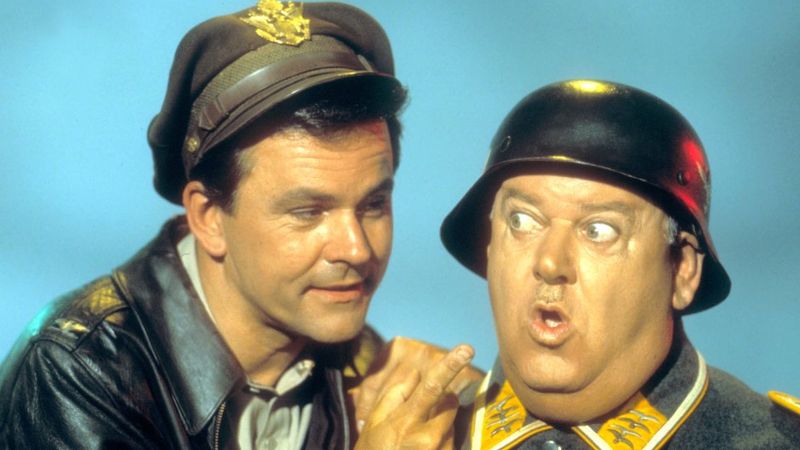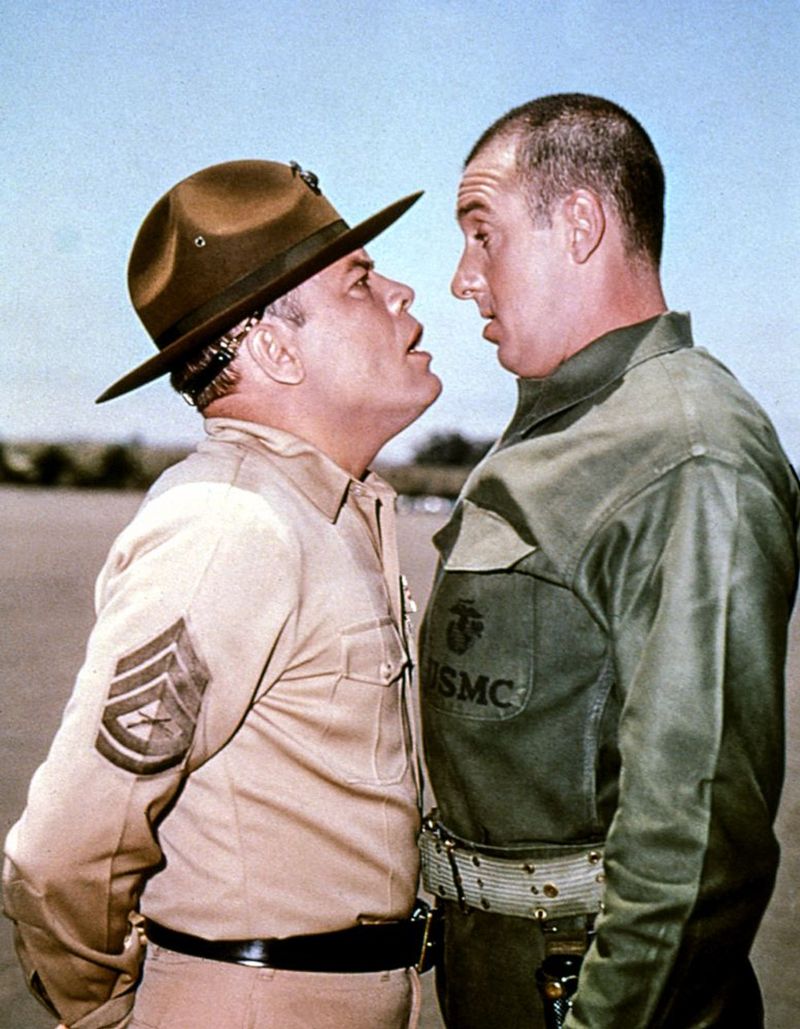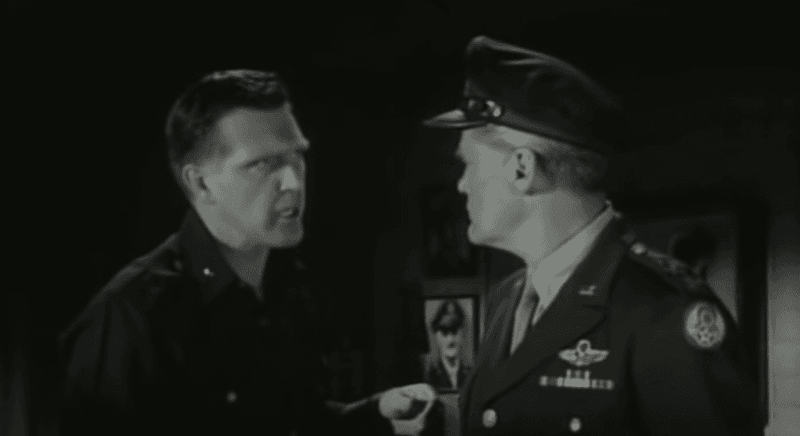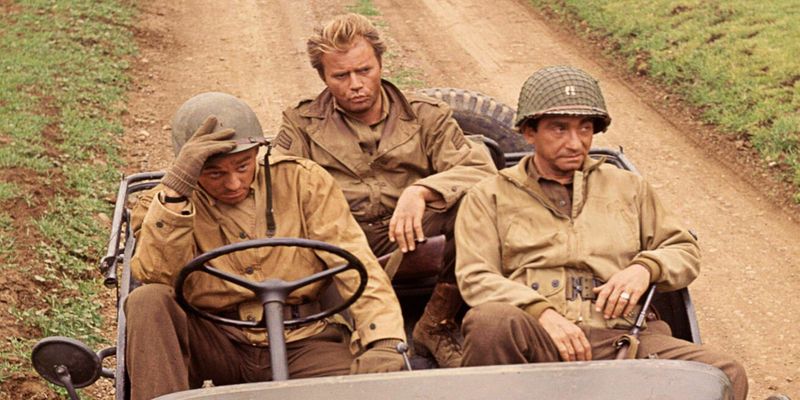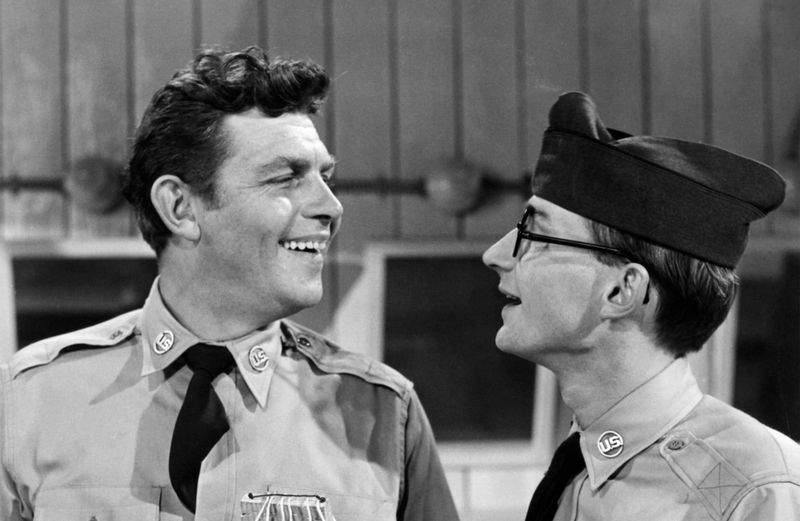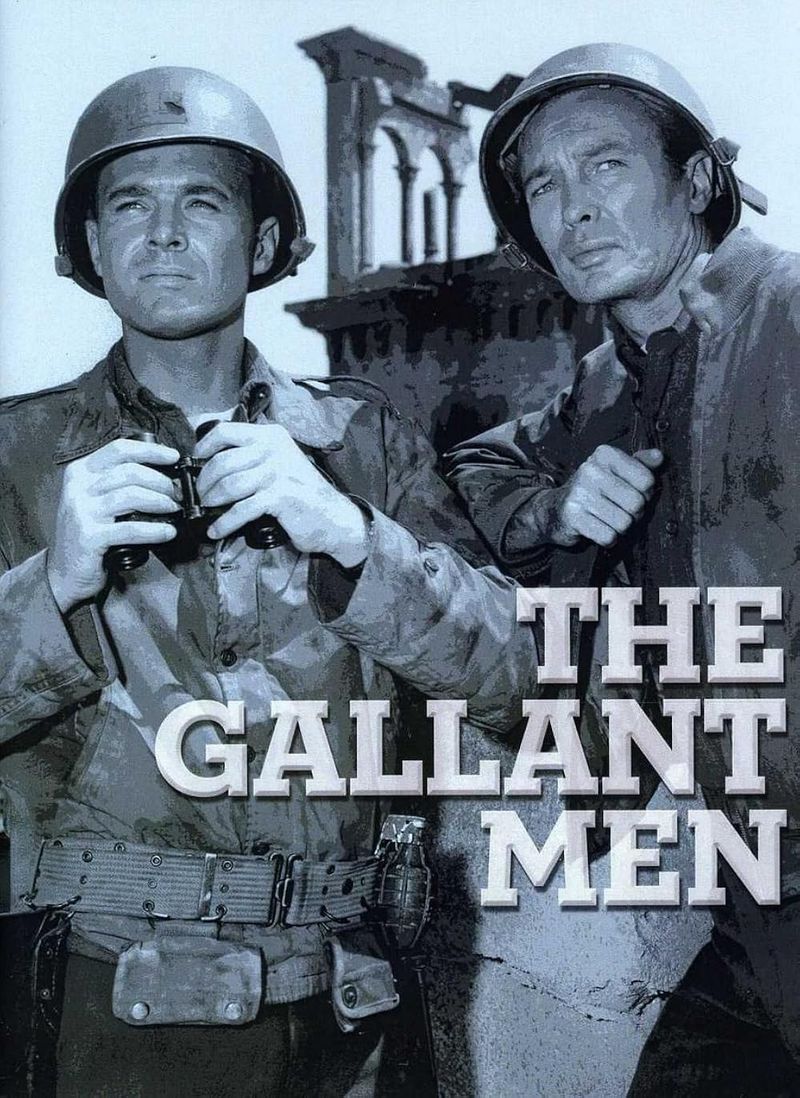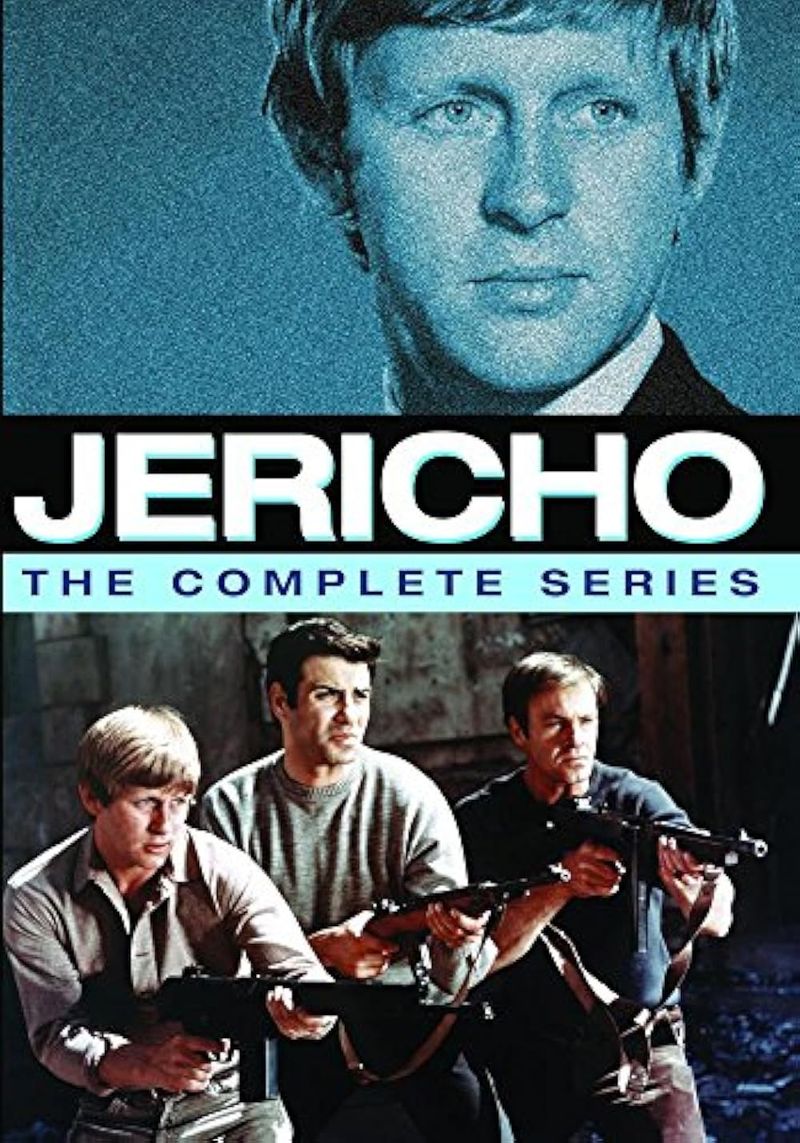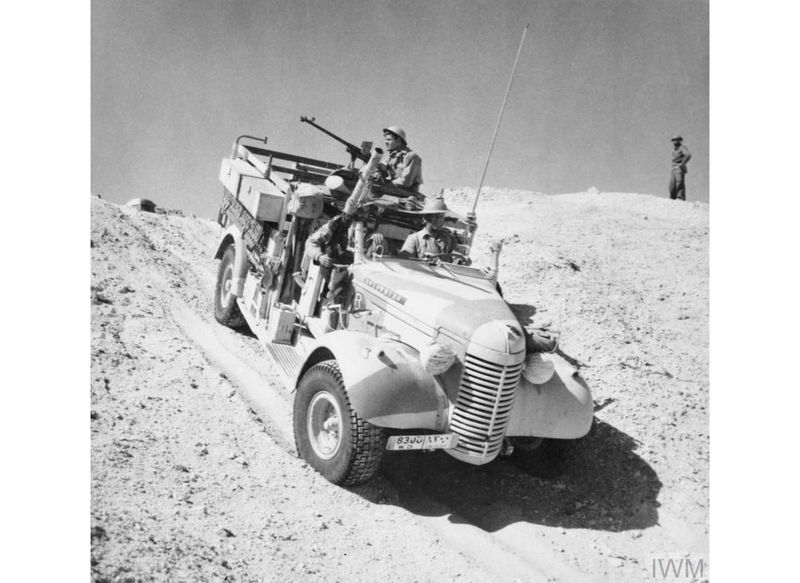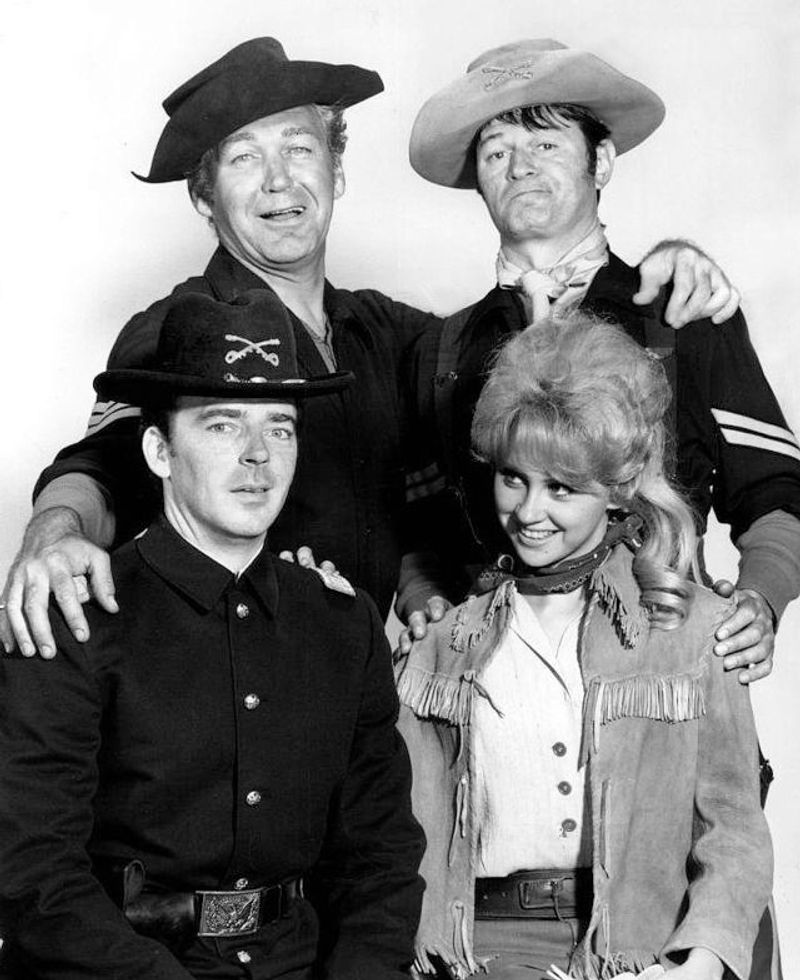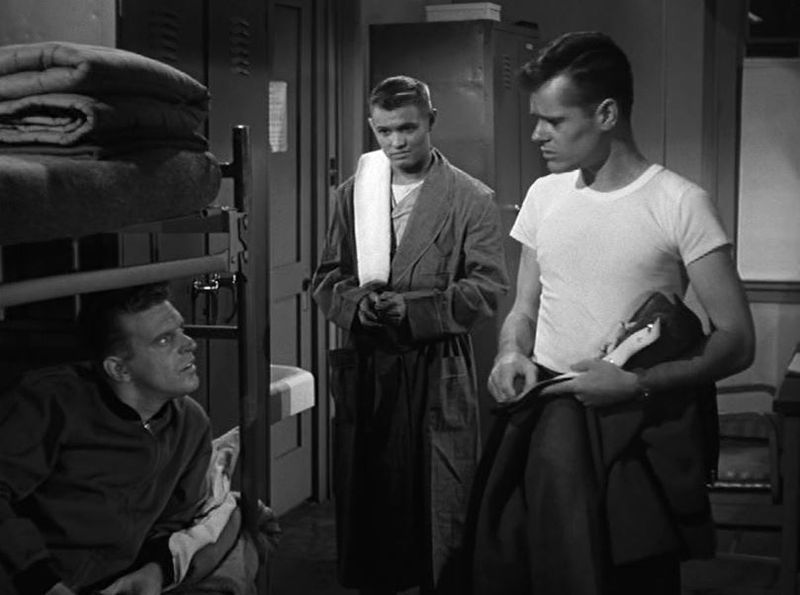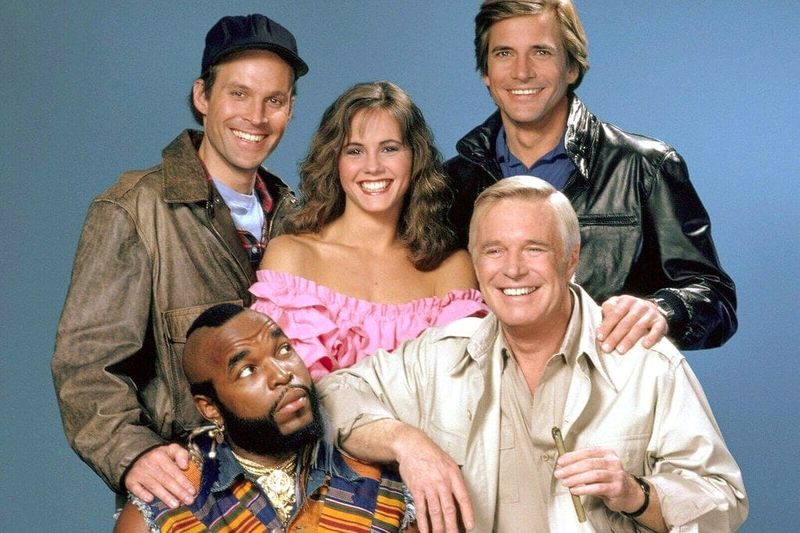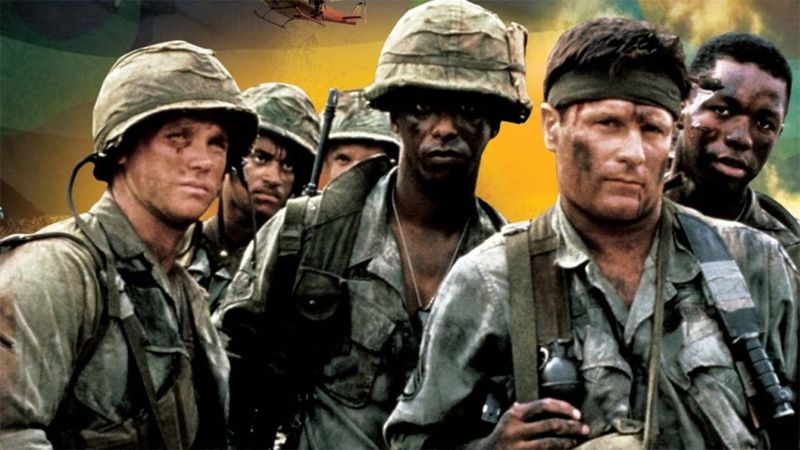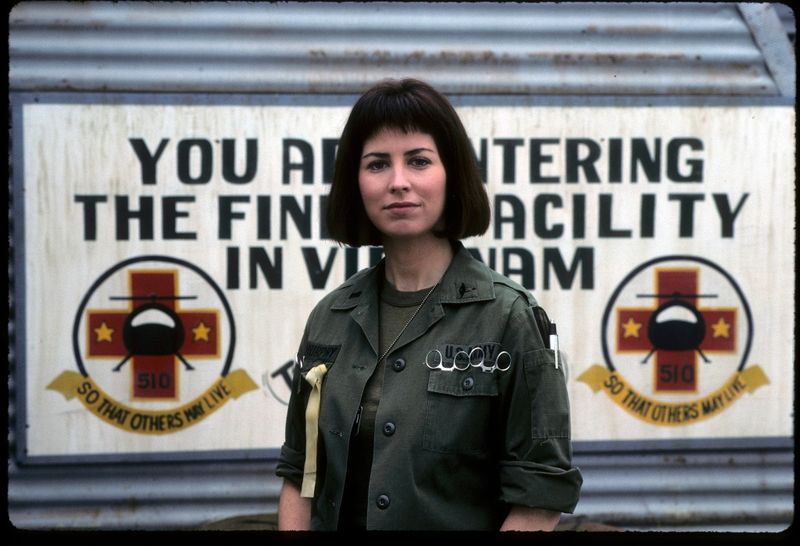Remember when military shows actually understood what service life was all about? Today’s flashy war dramas often miss the deep camaraderie, moral complexities, and authentic experiences that defined the classics. From the 1960s through the early 1990s, television delivered military stories that resonated with veterans and civilians alike. These 15 shows captured something special that modern productions rarely achieve.
1. Hogan’s Heroes Mastered Wartime Satire
Somehow, a sitcom set in a Nazi POW camp became one of television’s most beloved military comedies. Colonel Robert Hogan and his multinational team of saboteurs operated a resistance unit right under their captors’ noses.
The genius lay in how the show balanced humor with genuine respect for POWs and resistance fighters. Many cast members were themselves WWII veterans or Holocaust survivors, bringing personal understanding to their roles.
Behind the laughs, the show celebrated intelligence over force and highlighted the small victories possible even in the worst circumstances.
2. Gomer Pyle Captured Military Heart Without Combat
Jim Nabors brought the lovable gas station attendant-turned-Marine to life with an innocence that connected with viewers nationwide. The fish-out-of-water comedy showed military life beyond the battlefield.
Sergeant Carter’s frustrated bellowing couldn’t break Gomer’s spirit or kindness. Their relationship evolved from antagonistic to grudgingly respectful, reflecting how military service shapes different personalities into a functioning unit.
The show succeeded by focusing on everyday base life rather than combat heroics, revealing how the military is as much about personal growth and adaptation as it is about warfare.
3. M*A*S*H Redefined War Storytelling Forever
Originally conceived as a comedy, M*A*S*H evolved into television’s most profound statement on war’s human cost. Set during the Korean War but clearly commenting on Vietnam, the 4077th Mobile Army Surgical Hospital became America’s window into military medicine.
Hawkeye Pierce and his fellow doctors used humor to survive the horrors they witnessed daily. The show’s brilliance came from its balance – genuine laughs alongside gut-wrenching tragedy.
No modern military show has matched M*A*S*H’s ability to make viewers laugh one minute and cry the next, all while delivering powerful anti-war messages without disrespecting those who served.
4. Twelve O’Clock High Explored Leadership Under Pressure
Originally a film before becoming a television series in 1964, this show examined the psychological burden of command during WWII bombing missions. The 918th Bomb Group faced impossible odds with leaders who had to send men to possible death.
The series pioneered the concept of ‘combat fatigue’ (now known as PTSD) when most war stories ignored psychological impacts. Episodes often centered on tough decisions where no perfect answer existed.
What made the show revolutionary was its unflinching look at how leadership positions could destroy good men from within, long before mental health in the military became a mainstream topic.
5. Combat! Brought Raw WWII Reality Home
Long before high-budget war movies, this 1962 series followed Sgt. Saunders and his squad through the European theater with remarkable authenticity. The show consulted actual WWII veterans to ensure details felt right.
What made Combat! revolutionary was its refusal to glorify war. Episodes often ended without clear victories, instead showing exhausted men simply surviving another day. The characters wrestled with fear, duty, and moral quandaries in ways that felt genuinely human.
Many veterans praised the show for capturing the emotional truth of combat experience rather than just the action sequences.
6. No Time for Sergeants Humanized Military Hierarchy
Andy Griffith first brought Will Stockdale to life on Broadway before the character appeared in this short-lived but influential TV adaptation. The good-natured country boy’s adventures in the Air Force highlighted the clash between rural simplicity and military bureaucracy.
Unlike modern military comedies that rely on crude humor, this show found comedy in the genuine culture shock of military indoctrination. Will’s earnest attempts to be a good airman despite misunderstanding nearly every order created situations both hilarious and heartwarming.
The series showed how the military melting pot brought Americans from different backgrounds together, creating unexpected bonds.
7. The Gallant Men Honored Infantry Sacrifice
This short-lived ABC drama followed an American infantry company fighting through Italy during WWII. Despite running just one season, it left a lasting impression through its commitment to showing the grunt’s-eye view of war.
Captain Jim Benedict led his men through terrain that was both physically and morally challenging. The show depicted soldiers as ordinary men facing extraordinary circumstances rather than superheroes.
What separated The Gallant Men from other war dramas was its attention to the mundane aspects of military life – the waiting, the weather, the weight of equipment – details that veterans recognized as the true texture of war experience.
8. Jericho Celebrated Intelligence Over Firepower
Before James Bond dominated spy culture, this overlooked gem showcased Allied intelligence operations behind enemy lines. Three agents with different specialties formed an elite team conducting sabotage missions in Nazi-occupied Europe.
The show stood out by emphasizing brains over bullets. Episodes typically featured elaborate deception operations rather than shootouts, with tension building through psychological warfare.
Jericho represented a refreshing counterpoint to combat-heavy war stories, highlighting the crucial role of intelligence gathering and psychological operations that modern military shows often reduce to mere plot devices.
9. Ensign O’Toole Showcased Navy Life With Humor
Dean Jones starred as the charming, resourceful junior officer aboard the USS Appleby, creating naval mischief that delighted viewers. Unlike today’s military dramas obsessed with combat, this show focused on the everyday comedy of peacetime service.
O’Toole’s schemes often involved helping his shipmates while staying just within regulations. The show captured the creativity military personnel develop to make the best of strict environments.
What made the series special was its understanding that military service consists mostly of routine days punctuated by moments of excitement – a reality that modern high-octane military shows completely miss.
10. The Rat Patrol Turned Desert Warfare Into Adventure
Four Allied soldiers in modified jeeps wreaked havoc on Rommel’s Afrika Korps in this action-packed series set during the North African campaign. With machine guns mounted on their vehicles, this small team outmaneuvered larger German forces through speed and surprise.
The show pioneered the small-team special operations format that today’s military shows love. However, The Rat Patrol maintained a sense of historical context that modern counterparts often lack.
Fascinating historical detail: the series was based on actual British Long Range Desert Group and SAS units that conducted similar raids, bringing a forgotten theater of WWII into American living rooms.
11. F Troop Poked Fun At Military Bureaucracy
Set in the post-Civil War frontier, this beloved comedy featured the most hilariously incompetent cavalry unit ever assembled at Fort Courage. Sergeant O’Rourke and Corporal Agarn ran various money-making schemes while Captain Parmenter remained oblivious to their antics.
The show’s genius lay in its equal-opportunity mockery. Military bureaucracy, frontier myths, and Wild West stereotypes all received good-natured ribbing that somehow never felt mean-spirited.
Beyond the slapstick, F Troop subtly commented on how military outposts often developed symbiotic relationships with local communities – including the nearby fictional Hekawi tribe, who were partners in O’Rourke’s enterprises.
12. West Point Brought Military Academy Life To Television
This pioneering anthology series took viewers inside America’s most prestigious military training ground with stories based on actual cadet experiences. The U.S. Military Academy fully cooperated with production, lending authentic locations and technical advice.
Each episode followed different cadets facing unique challenges that tested their character and commitment. The show emphasized that officer training was as much about ethical development as tactical knowledge.
What made West Point revolutionary was its focus on the formative military experience rather than combat itself. It showed how the values and principles instilled at the academy shaped the officers who would later lead in wartime.
13. The A-Team Celebrated Vietnam Veterans As Heroes
When most media portrayed Vietnam veterans as broken or dangerous, The A-Team presented them as skilled, loyal, and honorable men who continued serving others. These fugitive Special Forces soldiers used their military training to help ordinary people facing extraordinary problems.
Hannibal Smith, B.A. Baracus, Face, and Murdock became cultural icons by turning their war experiences into forces for good. The show’s catchphrase – “I love it when a plan comes together” – celebrated military strategic thinking applied to civilian problems.
Despite its cartoonish action sequences, the show did something revolutionary: it portrayed Vietnam veterans with dignity and purpose when society often did neither.
14. Tour of Duty Confronted Vietnam’s Harsh Realities
When most of America wanted to forget Vietnam, this groundbreaking series forced viewers to remember. Following Bravo Company’s infantry platoon through their one-year tour, the show refused to simplify the conflict into clear heroes and villains.
The diverse squad represented America’s racial and socioeconomic divisions, bringing homeland tensions into the combat zone. Episodes tackled controversial topics like friendly fire, civilian casualties, and drug use among troops.
Most importantly, Tour of Duty showed how soldiers could oppose the war’s politics while remaining loyal to each other – a nuance modern military shows rarely capture when addressing controversial conflicts.
15. China Beach Revealed War’s Impact On Medical Personnel
While most Vietnam War stories focused on combat troops, this groundbreaking drama spotlighted the doctors, nurses, and support staff at an evacuation hospital and R&R center. Dana Delany’s portrayal of nurse Colleen McMurphy showed the war through female eyes when most military dramas remained male-dominated.
The series pioneered the use of period music to evoke emotional responses, with Motown and rock creating powerful contrasts to the medical trauma onscreen. Episodes often followed patients from battlefield to treatment, humanizing the casualties usually reduced to statistics.
China Beach courageously addressed PTSD, moral injury, and the war’s lasting psychological impact decades before these became mainstream topics.
